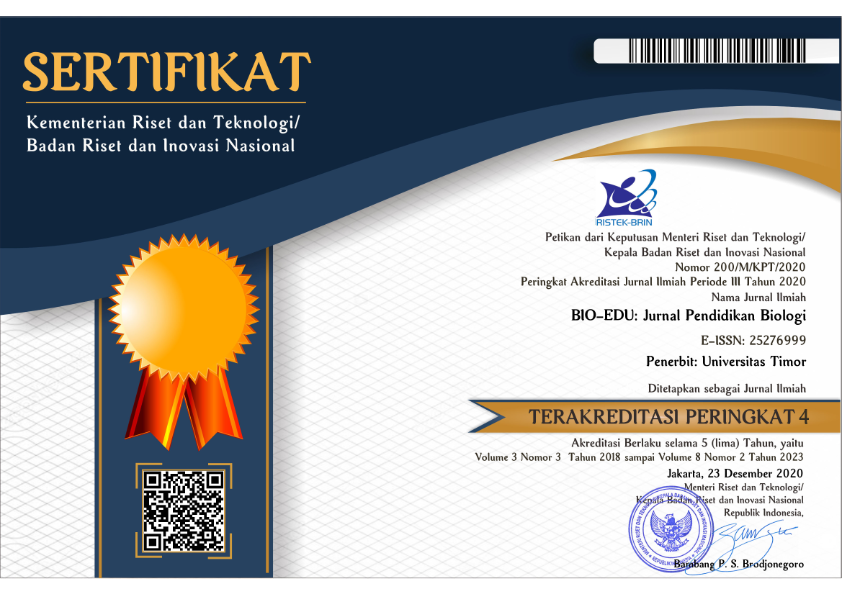Diversity of Lichen in Mangrove Forest of Tomoli Village Parigi Moutong Regency
DOI:
https://doi.org/10.32938/jbe.v5i3.730Keywords:
Diversity; Lichen; Mangrove Forest; Tomoli Village; Parigi Moutong RegencyAbstract
Lichen is an organism resulting from a symbiotic association between fungi and algae in mutualistic symbiosis and eroticism, forming a morphological unity that is different from other species from its constituent components. This study aims to determine the level of lichen species diversity that grows in mangrove forests in Tomoli Village, Parigi Moutong Regency. This research was conducted in July 2019. The method used in this study was a survey method, the sampling technique was purposive sampling, namely by using a 10 cm x 10 cm plot on the mangrove trees in each path at the research location. The research results found ten types of lichen consisting of six genera, five families, seven orders, and four classes divided into two groups based on the kind of thallus, namely lichen crustose and foliose. The crustose lichen group is Aspicilia calcarea, Aspicilia sp, Pyrenula sp, Pyrenula dermatodes, Pyrenula santensis, Cryptothecia striata, Phaeographis sp, Graphis script, Verrucaria sp. Meanwhile, the foliose lichen group is Flavoparmelia caperata. The lichen diversity index value obtained in the mangrove forest in Tomoli Village was 2,225, indicating that the level of diversity is moderate.
Downloads
Published
Issue
Section
License
The Authors submitting a manuscript do so on the understanding that if accepted for publication, the copyright of the article shall be assigned to BIO-EDU: Jurnal Pendidikan Biologi and Departement of Biology Education, Universitas Timor as the publisher of the journal. Copyright encompasses rights to reproduce and deliver the article in all form and media, including reprints, photographs, microfilms, and any other similar reproductions, as well as translations.
BIO-EDU journal and Departement Biology Education, Universitas Timor, and the Editors make every effort to ensure that no wrong or misleading data, opinions, or statements be published in the journal. In any way, the contents of the articles and advertisements published in BIO-EDU are the sole and responsibility of their respective authors and advertisers.
Users of this website will be licensed to use materials from this website following the Creative Commons Attribution-ShareAlike 4.0 International License.



















